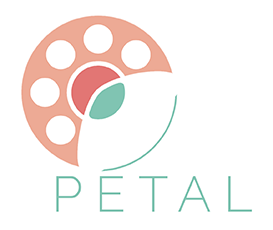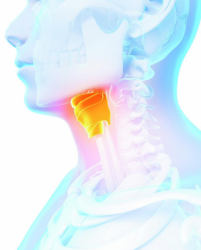

LARYNGECTOMY.NET
First step of phase I: exploratory analysis of needs
Analysis carried out with general practitioners
The general practitioner has a central role in the treatment of each patient, he/she is the first person the patient turns to in case of health problems and coordinates the healthcare. Therefore, he/she must be fully trained in the treatment of laryngectomised patients in general, and informed about the treatment of each patient in particular.
An assessment of this healthcare coordination was therefore performed as part of the work for a medicine thesis by Dr Adrien Daniel, under the direction of Dr. Lionel Capdebon, entitled: “Role of general practitioners in the treatment of patients having undergone total laryngectomy: situational analysis from a sample of physicians in Lower Normandy”.
The objective of this study was to demonstrate and describe the shortcomings in the training and information of general practitioners for laryngectomised patients. Ultimately, the objective was to compensate these shortcomings via the therapeutic education programme PETAL, in order to improve the quality of life of patients.
Hence, 40 interviews, lasting 19 minutes on average, were conducted with general practitioners who cared for laryngectomised patients in 2013.
Among these 40 physicians, 28 practised in rural areas, i.e. 71% of them. Only twelve practised in an urban area, i.e. 29%. Two thirds were men (27/40) and the remaining third were women (13/40).
Concerning the age of these doctors, it was distributed as follows:
• Under 30 years: 0/40, i.e. (0%)
• 30 to 40years: 1/40, i.e. (2.4%)
• 41 to 50years: 4/40, i.e. (9.8%)
• 51 to 60years: 20/40, i.e. (50%)
• Over 60 years: 15/40, i.e. (38%)
Concerning the initial training, 92.7% of doctors declared they received insufficient initial training on the treatment of laryngectomised patients. Furthermore, 51% declared they did not have sufficient skills to treat these patients. Finally, 75.6% of them declared having difficulties (technical) in the outpatient care of laryngectomised patients.
Concerning the coordination of healthcare and general practitioner information, 31 doctors declared that the exchanges with the hospital teams were insufficient. This dissatisfaction was primarily related to an inappropriate letter (55% of cases), insufficient information concerning the outpatient care of the patients (77.40%), difficulties contacting the hospital team by telephone (1 out of two cases) and a receiving the specialist’s letter late (42%). Hence, more than three quarters (31/40) of the doctors questioned declared feeling that they were not associated to the therapeutic project of laryngectomised patients.
This highly interesting work highlights the shortcomings of the initial and continuing education of general practitioners with respect to the treatment of laryngectomised patients, as well as a weakness in the outpatient care-hospital network. The impact of these two points on the quality of life of the patient can only be negative, as the patient can hardly be helped by a doctor who lacks general knowledge on laryngectomy, or patient-specific information.
In this context, it would seem essential that the PETAL programme provides general practitioners with the information required for the care of a laryngectomised patient, and to offer means to reinforce the outpatient care-hospital network: a simple and quick method to contact a member of the hospital team.
First stage: assessment of education needs in:

